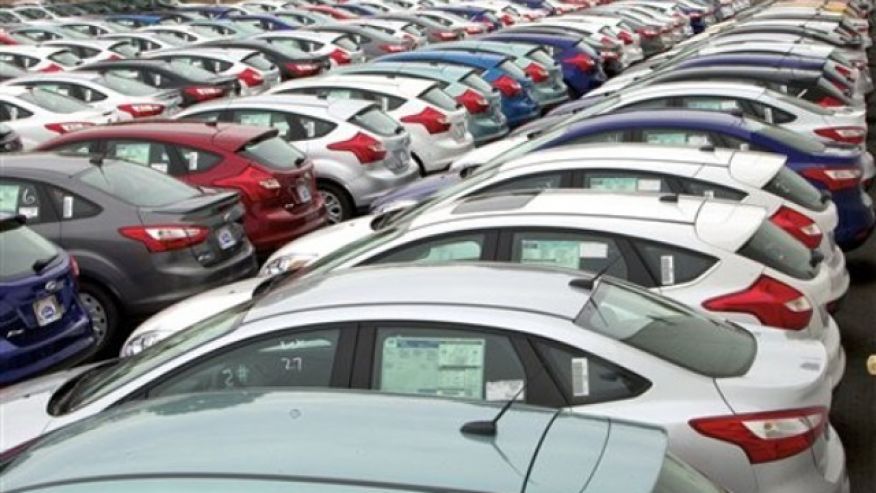Car design have evolved gradually over the past 130 years. Many of the changes and technologies that we now take for granted in our cars came out in fits and starts. The car as we know it today didn’t just evolve overnight. Its evolution has been reminiscent of the evolution of all the other innovations that human beings have developed through the millennia.
There was a time the hand brake was outside the car or when cars didn’t have windscreens. Some of the earlier cars didn’t even cover their engines. Necessity and the drive for efficiency drove the innovation in automotive design that made these features standard features in most modern cars. How many of us even remember that the seatbelt was only invented in the 1950s, after 50 to 60 years of an iconic but often deadly automotive heritage?
Most modern cars are now equipped with reverse parking cameras and LCD screens yet less than a decade or ago, these were either top premium features in a few luxury marques and probably unthinkable in your ordinary cars.
One of the biggest car gadgets at the moment is the car dash cam. A few years ago, car dash cameras would have been considered as luxuries that most of us could do without. Yet, in 2021, the car dash cam is one of the top car accessory purchases by vehicle owners throughout the world. Modern cars are equipped with lots of cool gadgets. One that is consistently overlooked by top automakers is the car dash cam. This has created a massive market for these little gadgets that are increasingly becoming invaluable companions in modern motoring.
In fact, it is not far-fetched to imagine that in the not-so-distant future, dashboard cameras may actually be a mandatory requirement in some jurisdictions due to their central importance in law enforcement on our roads, road safety and in insurance claims and disputes.
In the recent years, dashboard cameras have become the mainstays of law enforcement and insurance claims on our roads. They record important happenings on our roads that have considerably helped law enforcement efforts that make our roads a lot safer. Previously, we would have had to do with unreliable eyewitness reports. Dash cam technology has made capturing these events a lot easier. They have helped convict criminals, report road rage incidents and to monitor and police irresponsible road use. With millions of motorists installing dash cams on their vehicles, there is the awareness that whatever our actions, there is a ‘Big Brother’ somewhere watching and clicking away every bit of wayward behaviors on our roads. Such constant awareness is said to moderate some bad road habits which contributes to the overall safety of our roads.
A Dash Cam Culture is Emerging on Our Roads
As dash cameras have grown in popularity, a dash cam culture is emerging on our roads with its own sets of informal habits and ‘rules’. Increasingly, we are seeing thousands of dash cam footage being uploaded online in various content sharing platforms. Drivers, once content to wallow in the anonymity and solitude of the driver’s seat are now eager to share their rides with the world. They are eager to have the dash cam sitting there and clicking away at the shifting landscapes and millions of other road users with the hope of some day capturing the motherlode, some freak event that happens once in a lifetime.
Beyond the yearnings of a once in a lifetime footage, most motorists install dash cams for a more practical and utilitarian reason: they can capture accidents and incidents and help with the police investigations and insurance claims.
Accidents happen so fast that eyewitness testimonies are often unreliable and leave gaping holes that often have to be filled through speculation, clever guesswork and analyses that may be prone to human error. With dash cams installed on your car, there is simply no room for human error.
Human memory is organic and subjective. It shifts with time. Dash cams, on the other hand, capture the actual event and freeze it in time. It can be replayed over and over again to get the true proceedings of the events which helps a great deal in dispute resolution. It is hard to dispute the veracity of a dash cam footage, particularly when it is captured by a high-definition 4K dash cam that relays every little intricate detail of an event including the faces, vehicle models, registration numbers, as well as other small components of the event.
Even though the dash cam culture is growing at an exponential rate, it is still a Wild West terrain out there that is not heavily regulated, particularly in the US. Europe goes hard on privacy concerns when it comes to dashcam usage. In the US, this isn’t the case.
Should Dash Cams Be Mandatory in All Cars?
Don’t count on the slow grinding wheel of government regulation mandating dash cams yet but there is a strong argument for having them installed as a requirement in all cars. Laws might not be necessary as these gadgets are already becoming as mainstream as car scents but the public good argument makes them a great necessity for modern motoring.
In the future, installing dash cams in your car will even make economical sense as insurance companies begin rewarding drivers who use them with lower insurance premiums. This is already happening in some pockets of the globe.
Dash cams are immensely useful when it comes to car accidents, including both minor and major accidents. Car accidents are extremely costly, both for the car owner and the insurance company. It is therefore unsurprising that when an accident occurs, all parties try their best to wiggle themselves out of the financial responsibility. Police will only want to get involved in finding the true cause when the accident is serious and includes some serious injuries or fatalities. For those minor accidents that drive up insurance premiums, it is often a question of one driver’s word against the other. In such stalemates, a third-party testimony and thorough risk assessment is key in assessing what actually happened. Having a dash cam footage in such a situation provides an irrefutable piece of evidence that no party in the accident will be able to dispute.
Insurance Industry Beginning to Appreciate the Value of the Dash Cam
Both motorists and insurance companies are beginning to appreciate the value of the car dash camera evidence. In Australia, up to 40% of insurance claims are now accompanied with dash cam footage.
In Japan, car dash cams are already becoming mandatory, at least when it comes to insurance policies. Some insurance companies in Japan now offer mandates for dash cams. When vehicle owners apply for new insurance, they are asked whether they have in-car cameras installed and notified that having this will have an impact on their insurance premiums.
This is a trend that we could see spread across globe where more insurance companies may begin offering discounted mandates for motorists with dash cams installed. Of course, it will have to make business sense for insurance companies. If insurers can establish from historical claims or crash reports that accidents involving dash cams are easier and most cost-effective to resolve, we could see some solid traction on this front.
No Real Push to Mandate Dashboard Cameras in New Cars the US
The use of dashboard cameras is perfectly legal at the federal level in the U.S. and is protected by the First Amendment. However, there are differences in how this is implemented at the state level. State laws on the usage dashboard cameras may differ slightly. For instance, many states outlaw installing the dashboard camera on the vehicle windshield.
Currently, there isn’t any concerted regulatory push to make dashboard cameras mandatory in the various US states. The fitment of dash cams is still pretty much up to individual motorist.
Are Auto Manufacturers Embracing Dash Cams in New Car Models?
In spite of the lack of the regulatory push, there are automakers such as BMW which have taken it upon themselves to fit dashcam solutions in their automobiles. BMW, for instance, offers a downloadable dash cam system for some of its models. Tesla is also offering the Sentry Mode that allows drivers to record moments.
Citroen introduced an optional dash cam for its C3 model but it later yanked it out due to low demand. These piecemeal efforts show us that automakers are at least giving an in-built dash cam some serious thought and that in the future, dash cams might come as part of the standard package in new cars.
The Backup Camera Precedence in 2014
There is some precedent that could see dash cams being fitted in new cars in the future. Less than a decade ago, reverse parking cameras and the accompanying LCD screens in front of the driver weren’t part of the package in most cars rolling out of the assembly lines.
In 2014, the US Department of Transportation issued a new federal regulation requiring all new cars under 10,000 pounds to have backup cameras and video displays or what we commonly refer to as reverse parking cameras by 2018. This regulatory push came after solid data showed that backup cameras considerably reduced backover accidents which accounted for approximately 200 deaths and 15,000 injuries annually.
The car dash cam is still in its early days. Perhaps, as more dash cam data is processed and its importance understood, we could see similar directives in the future requiring new cars to have dash cams.







